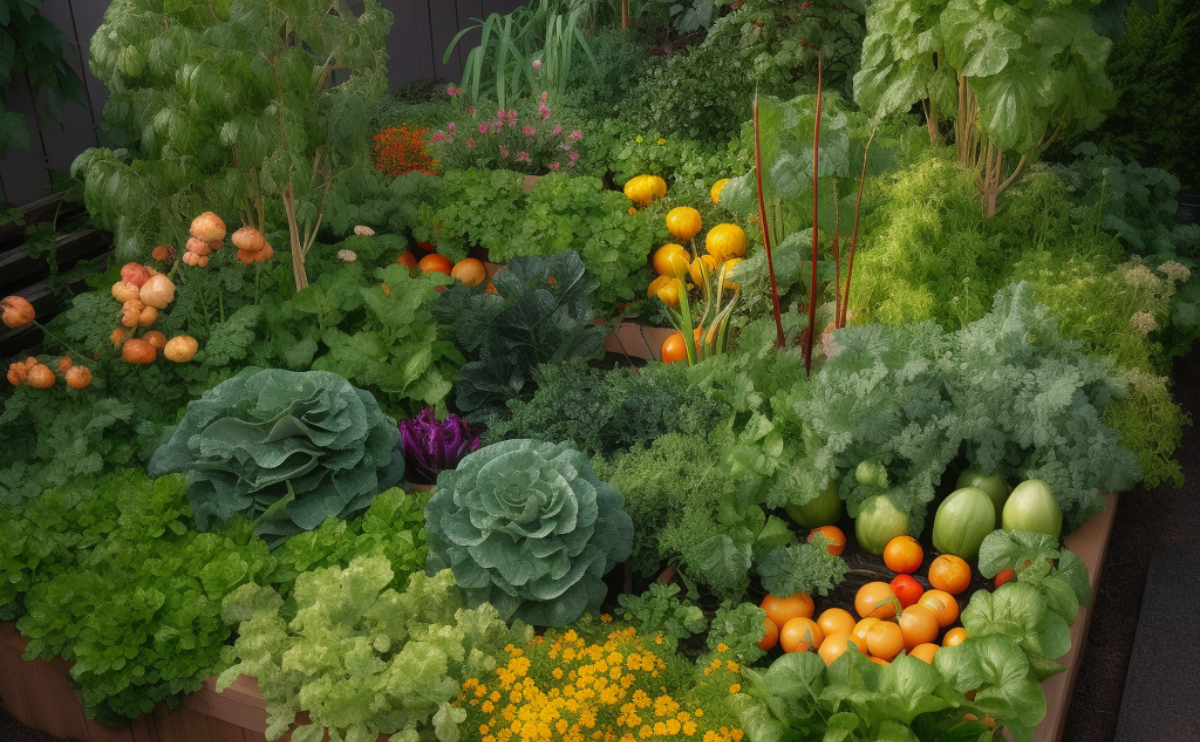Companion planting is a gardening practice that involves growing different plants together for mutual benefits. When certain plants are planted next to each other, they can help each other grow, deter pests, and improve soil health. If you’re planning to plant your garden in May, it’s a great time to consider companion planting.
One of the benefits of companion planting is that it can help you maximize your space. By growing plants together that have different growth habits, you can create a garden that is both beautiful and productive. For example, you can plant tall plants like sunflowers or corn next to shorter plants like lettuce or radishes, allowing you to make the most of the space in your garden.
Another benefit of companion planting is that it can help control pests. Some plants, such as marigolds, have natural pest-repelling properties. By planting them near other plants, you can help protect them from pests like aphids and beetles. Additionally, planting herbs like basil and mint near your vegetables can help deter pests while also providing you with fresh herbs to use in the kitchen.
When planning your companion planting, it’s important to consider the different plant families. Plants in the same family often have similar nutrient requirements and pests, so it’s best to avoid planting them together. For example, tomatoes and potatoes are both in the nightshade family and are susceptible to the same pests and diseases. Planting them together can increase the risk of problems developing in your garden.
Here are some popular vegetable varieties and their companion plants:
- Tomatoes: basil, onions, carrots, parsley, marigolds
- Cucumbers: beans, peas, radishes, lettuce, dill, marigolds
- Carrots: onions, leeks, chives, garlic, lettuce, parsley
- Peppers: basil, tomatoes, onions, carrots, marigolds
- Lettuce: radishes, carrots, cucumbers, strawberries, chives

If you’re using heirloom seeds for planting, it’s especially important to consider companion planting. Heirloom seeds are often more susceptible to pests and diseases than modern hybrid varieties, so planting them with complementary plants can help protect them and promote their growth.
In addition to considering companion planting, choosing high-quality seeds is also important. FarmerValley Heirloom Seeds offers a wide variety of heirloom seeds for planting, including lettuce, peppers, herbs, and more. By using their seeds, you can help ensure a successful and bountiful garden.
Detailed Guides for Planting Vegetables, Herbs, Greens & Lettuce, Peppers, and Wildflowers:
At FarmerValley we offer detailed guides for planting vegetables, herbs, greens & lettuce, peppers, and wildflowers. These guides provide step-by-step instructions for planting and caring for your plants, as well as tips for getting the best results. Check our growing guides and plant your own non-GMO garden with confidence.
Planting non-GMO seeds is a great way to enjoy fresh and healthy vegetables and herbs while also knowing that you’re avoiding harmful additives. With these essential tips and top lists, as well as our detailed guides, you’ll be on your way to a bountiful harvest in no time.

